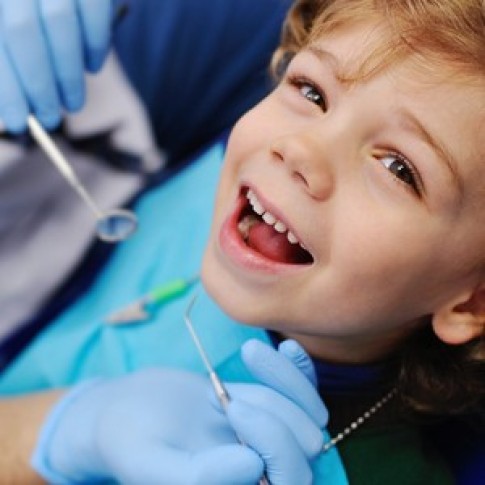Fluoride is a naturally occurring mineral found in many foods and water. It helps prevent tooth decay by making teeth more resistant. Topical fluoride is important to strengthening developing teeth.
Check up the Gallery (Articles) for important information regarding your childrens.
THANK YOU.
• active formation of enamel of deciduous teeth
• the time of changing the milk teeth to permanent
• high sensitivity of teeth
• thinning of the enamel or its micro cracks and chips
• caries in the spot stage
• rapid dissemination of caries
• wearing a bracket system
• A change in the hormonal imbalance that increases their viscosity and small separation of saliva
• To reduce hypersensitivity after teeth whitening
• Careful professional hygiene and polishing of teeth
• Drying the cleaned surface and applying the first component (calcium fluoride and magnesium) which seals the enamel
• After drying the second component of the product is applied (copper hydroxide). As a result of the chemical reaction calcium fluoride ions are actively released and permeated in the enamel of the tooth
• Thorough removal of the remnants of the product with water
• Individual recommendations to the patient for home then take care
• Preventing premature tooth loss
• Prevention of caries of infant teeth and an infection of permanent rudiments
• Absence of increased sensitivity of teeth too hot, cold, or sour
• Healthy strong teeth from childhood
The main rules of dental care in children
· The first teeth can be cleaned with special brushes. (oral B stage 1,2,3,4). First, brushing your teeth is done without a paste. Brush should be changed once a month. The main movement of the brush movements-sweeping-from the gums to the cutting edge or the chewing surface of the tooth.
· It is very important that the children also brush their teeth every day.
· Up to 6 years old the child can not clean his teeth with high quality himself. Therefore, after he does this, parents must check the quality of the cleaning and finish this procedure with their own hands.
· Toothpaste (appropriate to the age of the child) can be used even in young children. If you are sure that the child does not swallow the paste.
· The paste is applied to the brush in a very small amount. Brush your teeth twice a day-after breakfast and after dinner before bed.
· After six years, the child can clean his teeth well, but parents should check how he does it every day
To keep the child’s teeth healthy it is necessary:
· Limit the use of sweets especially between basic meals. (Give the child sweets only right after meals or a day off. After this, the child should immediately brush his teeth or rinse his mouth).
· Brest feeding
· Juices and other sweet drinks should be drunk through a straw.
· In time, discard the bottle with the pacifier.
· Observe hygiene. Do not give the child a pacifier or a spoon that you licked yourself or have tried the child’s food.
· Make sure that your child uses his teeth in the proper way: - Actively chewed, not lazy to gnaw firm vegetables, fruits, did not take foreign objects into his mouth, did not suck and did not bite his tongue, cheeks, lips.
· Tempering a child, preservation and treatment of other diseases of other diseases is also the prevention of tooth decay.
· Consult your pediatrician about the advisability of prescribing vitamins and calcium preparations for the child, which are necessary for the overall strengthening the body and for the proper formation of healthy teeth.
· Regular visit the dentist two or three times a year.

